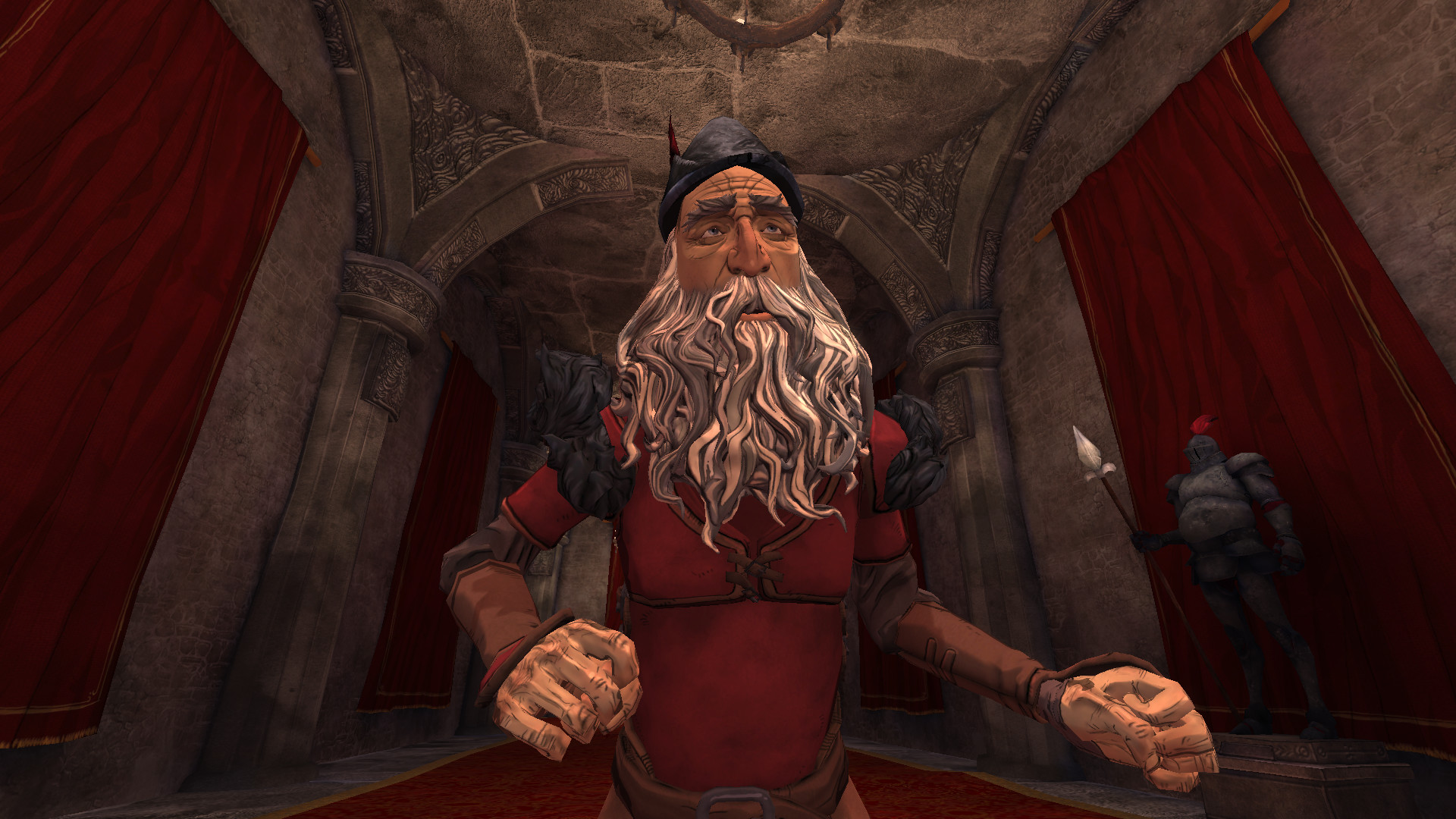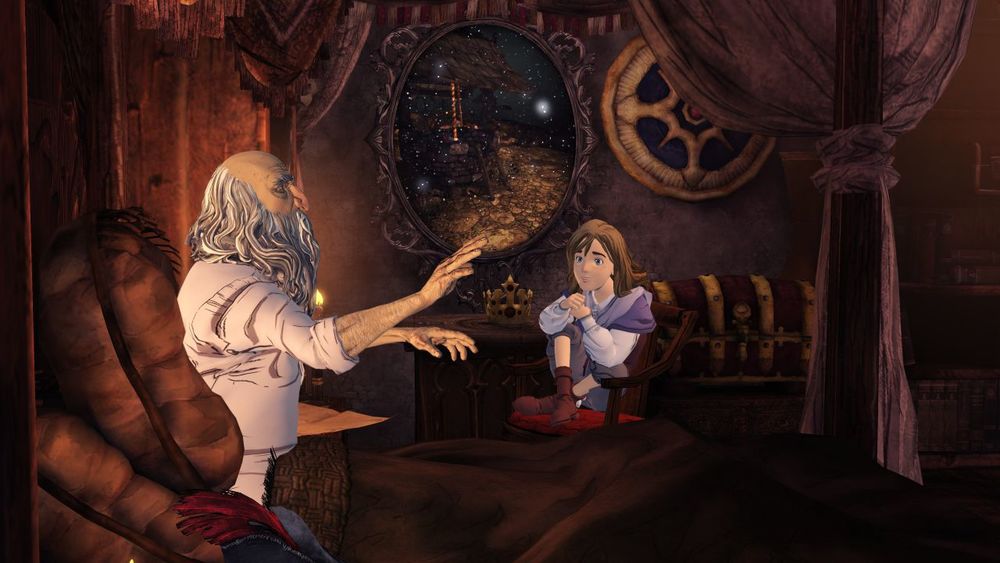I first found out about King’s Quest when I received the first chapter of the 2016 reboot, developed by The Odd Gentleman, as part of my PS Plus subscription. I was so impressed, I went on to buy King’s Quest: The Complete Collection.
And although the complete collection is fun and engaging, this chapter stuck with me the most. Why? Because it’s the first time I’ve played a game that depicts the mental and physical degeneration of an elderly individual with pathos and realistic visual metaphors.
As this fifth and final chapter to King’s Quest opens, King Graham, voiced by Christopher Lloyd (of Back to the Future fame) has now become forgetful, struggling to tell the grand and fabled story of his ascension to the throne. He speaks to his granddaughter, Gwendolyn, but his mind is wrecked with unease and instability.
Just as anyone with dementia or another degenerative disease of the mind, Graham fumbles through his memories, mismatching scenes into a patchwork of chaos. In King’s Quest‘s previous chapters, players used a horn to summon a bridge troll to access certain areas in the game. However, King Graham mistakenly thinks he rang a bell, insistent he was the arbiter of action — all until he is corrected by his upset granddaughter.
As his mind continues to falter under the weight of uncertainty and doubt, the player sees the kingdom engulfed in flames, just as Graham’s ailing mind begins to slowly disintegrate and cave in upon itself. A clever touch, our controls invert as we control an older King Graham rescuing inconsequential objects from the fire, which he believes represent his legacy. As his memories crumble, so does his grasp on reality.
As the hallways of his mind begin to narrow and doors shut themselves, so do areas of the game become inaccessible. Just as in the real world when the elderly struggle with diseases of the mind and their memories lock behind inaccessible doors, so does Graham’s past and history. Holding back tears as Gwendolyn becomes distraught as Graham becomes increasingly confused, the confused king asks her if his stories were good enough.
And to emphasize the disconnection of mind and body even more, the music warbles and distorts at times, highlighting the degeneration of Graham’s mind.
Eventually, the player ends up inside Graham’s mind itself as the king tries to piece together the memories of his younger days. Characters the player has gotten to know over the past four chapters become distorted, forcing the player to solve a music box puzzle to progress in the game. This is a physical representation of piecing memories together in real life.
This is what can happen to an older person when they are suffering from dementia — or their mental health is failing. Anyone who has looked after an older relative or worked as a caregiver for someone with dementia will be able to relate to the masterful storytelling and content of this chapter. It is harrowing — and a tale not for the faint of heart.








Published: May 11, 2017 06:25 am